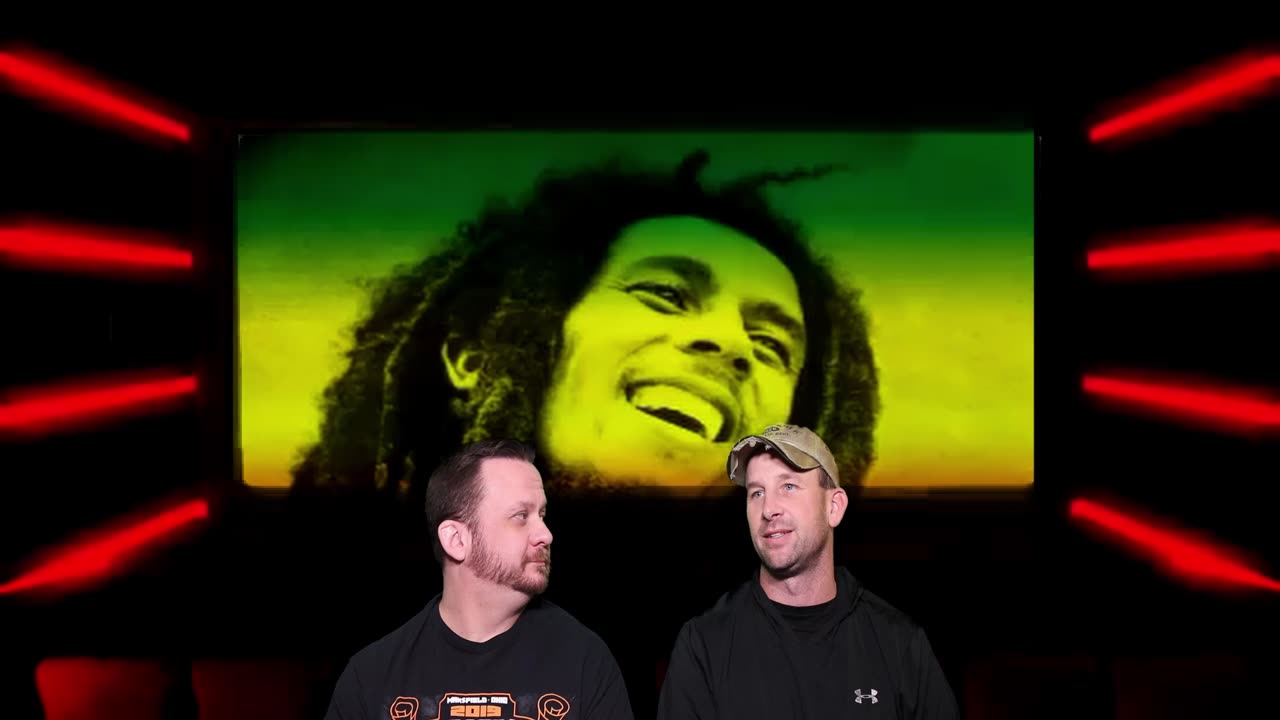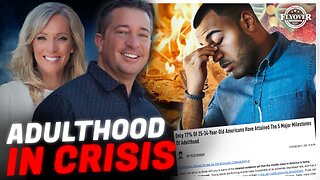Premium Only Content

Reggae Music - Trivia Game Featuring the Music of Bob Marley
Brian and Kevin are here with another fun trivia game focused on reggae music. So if you think you have the right answers, leave them in the comments below!
1. What was the name of the song and the artist that was the first Reggae hit to reach #1 on the UK billboard charts?
2. In what year did the aforementioned song hit #1?
We hope you have fun with this video! Let us know what you think!
As always, please subscribe and hit the notification bell for Inspiring How UC That to keep up with our videos, and if you like this video, please give us a thumbs up and leave a comment. Let us know what other bands you'd like to see us spotlight. We love you all, and God bless!!
#Reggae #Trivia #InspiringHowUCThat #bobmarley #brianandkevin #fungame #musicgame #musictrivia #playalong #Musicvideo #jamaican
*Copyright Disclaimer Under Section 107 of the Copyright Act 1976, allowance is made for "fair use" for purposes such as criticism, comment, news reporting, teaching, scholarship, and research. Fair use is a use permitted by copyright statute that might otherwise be infringing. Non-profit, educational or personal use tips the balance in favor of fair use. No copyright infringement intended. ALL RIGHTS BELONG TO THEIR RESPECTIVE OWNERS*
Information on reggae music from Wikipedia (https://en.wikipedia.org/wiki/Reggae):
Reggae (/ˈrɛɡeɪ/) is a music genre that originated in Jamaica in the late 1960s. The term also denotes the modern popular music of Jamaica and its diaspora. A 1968 single by Toots and the Maytals, "Do the Reggay" was the first popular song to use the word "reggae", effectively naming the genre and introducing it to a global audience. While sometimes used in a broad sense to refer to most types of popular Jamaican dance music, the term reggae more properly denotes a particular music style that was strongly influenced by traditional mento as well as American jazz and rhythm and blues, and evolved out of the earlier genres ska and rocksteady. Reggae usually relates news, social gossip, and political commentary. It is instantly recognizable from the counterpoint between the bass and drum downbeat and the offbeat rhythm section. The immediate origins of reggae were in ska and rocksteady; from the latter, reggae took over the use of the bass as a percussion instrument.
Reggae is deeply linked to Rastafari, an Afrocentric religion which developed in Jamaica in the 1930s, aiming at promoting pan-Africanism. Soon after the Rastafarian movement appeared, the international popularity of reggae music became associated with and increased the visibility of Rastafari and spread its gospel throughout the world. Reggae music is an important means of transporting vital messages of Rastafari. The musician becomes the messenger, and as Rastafari see it, "the soldier and the musician are tools for change."
Stylistically, reggae incorporates some of the musical elements of rhythm and blues, jazz, mento (a celebratory, rural folk form that served its largely rural audience as dance music and an alternative to the hymns and adapted chanteys of local church singing), calypso, and also draws influence from traditional African folk rhythms. One of the most easily recognizable elements is offbeat rhythms; staccato chords played by a guitar or piano (or both) on the offbeats of the measure. The tempo of reggae is usually slower paced than both ska and rocksteady. The concept of call and response can be found throughout reggae music. The genre of reggae music is led by the drum and bass. Some key players in this sound are Jackie Jackson from Toots and the Maytals, Carlton Barrett from Bob Marley and the Wailers, Lloyd Brevett from the Skatalites, Paul Douglas from Toots and the Maytals, Lloyd Knibb from the Skatalites, Winston Grennan, Sly Dunbar, and Anthony "Benbow" Creary from the Upsetters. The bass guitar often plays the dominant role in reggae. The bass sound in reggae is thick and heavy, and equalized so the upper frequencies are removed and the lower frequencies emphasized. The guitar in reggae usually plays on the offbeat of the rhythm. It is common for reggae to be sung in Jamaican Patois, Jamaican English, and Iyaric dialects. Reggae is noted for its tradition of social criticism and religion in its lyrics, although many reggae songs discuss lighter, more personal subjects, such as love and socializing.
Reggae has spread to many countries around the world, often incorporating local instruments and fusing with other genres. Reggae en Español spread from the Spanish-speaking Central American country of Panama to the mainland South American countries of Venezuela and Guyana then to the rest of South America. Caribbean music in the United Kingdom, including reggae, has been popular since the late 1960s, and has evolved into several subgenres and fusions.
-
 8:15
8:15
Inspiring How UC That
2 years ago $0.06 earnedFavorite Guitarists - Top 10; Featuring Eddie Van Halen, Nita Straus, Matthew Yost, and More
198 -
 LIVE
LIVE
TimcastIRL
2 hours agoTrump Floats Accepting 600,000 Chinese Student Visas, MAGA Uproar | Timcast IRL
15,892 watching -
 LIVE
LIVE
SpartakusLIVE
7 hours ago$20,000 Hide and Seek Tourney w/ Stonemountain64 || #1 Rat wins the BIG CHEESE
322 watching -
 2:34:02
2:34:02
Barry Cunningham
3 hours agoLISA COOK | ADAM SCHIFF | LETITIA JAMES | ARE THEY BEING SACRIFICED BY THE DEEP STATE?
32.7K20 -
 LIVE
LIVE
Flyover Conservatives
11 hours agoOnly 17% of Millennials Hit These 5 Adult Milestones—Why?; What If Childhood Trauma Is Behind Your Health Problems? - Dr. Troy Spurrill | FOC Show
375 watching -

HogansAlleyHero
13 hours ago💥CHASING DOPAMINE💥✅TRUMP SAYS BATTLEFIELD IS THE BEST✅
2.24K -
 1:57:40
1:57:40
MattMorseTV
4 hours ago $6.49 earned🔴Trump just SHATTERED the PROJECTIONS.🔴
25.1K21 -
 LIVE
LIVE
megimu32
2 hours agoOTS: From Star Search to Superstardom
79 watching -
 LIVE
LIVE
Joker Effect
1 hour agoInterviewing GREENMAN! Looks like he is coming to Rumble! Let's give him a warm welcome! REAL TALENT
437 watching -
 LIVE
LIVE
Anthony Rogers
8 hours agoEpisode 380 - Is Pain All In Your Head?
51 watching